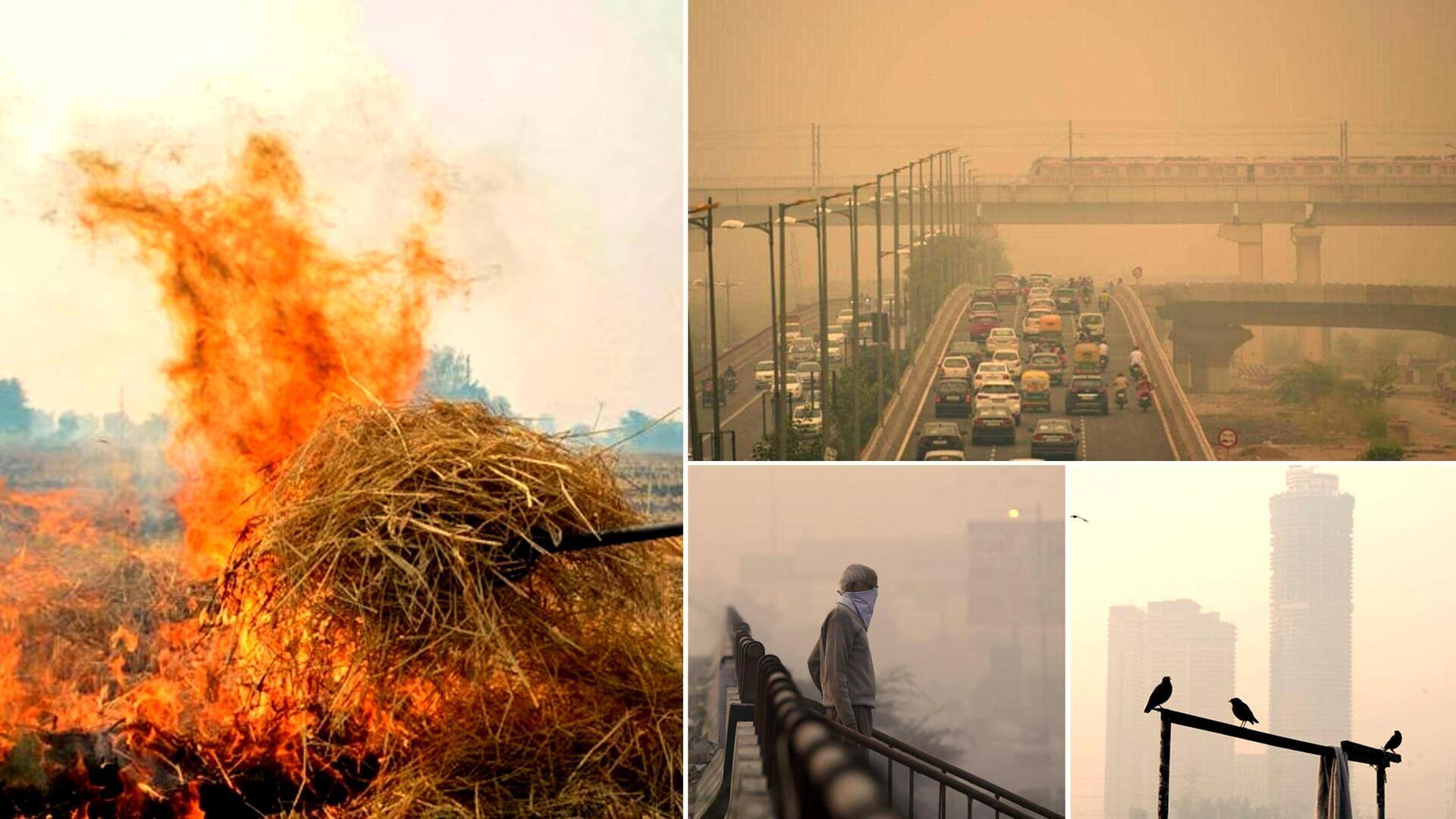
Delhi's air quality improves slightly but remains toxic
What's the story
Delhi continues to remain engulfed in toxic air even as its air quality index (AQI) saw a slight improvement on Tuesday.
The city's AQI was 396 at 7:00am on Tuesday, improving from "severe" on Monday to the "very poor" category, per the Central Pollution Control Board (CPCB) data.
Nonetheless, numerous air monitoring stations across Delhi still reported "severe" AQI levels, such as Anand Vihar (438), Okhla Phase 2 (422), Rohini (444), Punjabi Bagh (437), and New Moti Bagh (410).
Context
Why does this story matter?
Delhi remains India's most polluted city and tops the global rankings of polluted cities, posing serious health risks to residents.
A combination of factory emissions, vehicle emissions, and smoke from stubble burning increases Delhi's pollution significantly every winter.
Amid severe AQI levels, the Commission for Air Quality Management (CAQM) implemented GRAP IV measures banning the entry of trucks into Delhi and construction activities, among other measures.
The manufacturing, storage, and selling of firecrackers were already banned in the national capital.
Details
PM2.5 levels 30-40 times higher than WHO's acceptable limit: Report
According to NDTV, microscopic particulate matter (PM2.5) levels in numerous areas throughout Delhi-NCR reached eight times the government's safe limit of 60 micrograms per cubic meter.
Moreover, they were 30-40 times higher than the World Health Organization (WHO)'s acceptable limit of 15 micrograms per cubic meter. These particles can lodge deep inside the lungs and cause health problems.
Other NCR cities with hazardous air quality include Ghaziabad (338 AQI), Gurugram (364), Noida (348), Greater Noida (439), and Faridabad (382).
Details
Delhi implements measures to combat pollution crisis
In light of the deteriorating air quality, Delhi Chief Minister Arvind Kejriwal held a high-level meeting with Environment Minister Gopal Rai and top officials from relevant departments on Monday.
The odd-even vehicle rationing scheme will be in effect from November 13 to November 20.
All schools in Delhi have also been closed until November 10, except for students of Classes 10 and 12 (preparing for board exams).
Neighboring districts Gurugram and Faridabad have also mandated school closures for primary students.
What Next?
GRAP IV restrictions, weather forecast for Delhi-NCR
As anti-pollution measures under the Graded Response Action Plan (GRAP) Stage IV are enforced in Delhi, trucks transporting non-essential goods are prohibited from entering the national capital from neighboring states.
Moreover, BS-III (Bharat Stage III emission norms) petrol and BS-IV diesel vehicles have been prohibited from operating in Delhi.
Meanwhile, the Regional Meteorological Centre (RMC) in Delhi forecasted mainly clear skies and smoke until Wednesday, followed by a partly cloudy sky with chances of a light drizzle on Thursday.